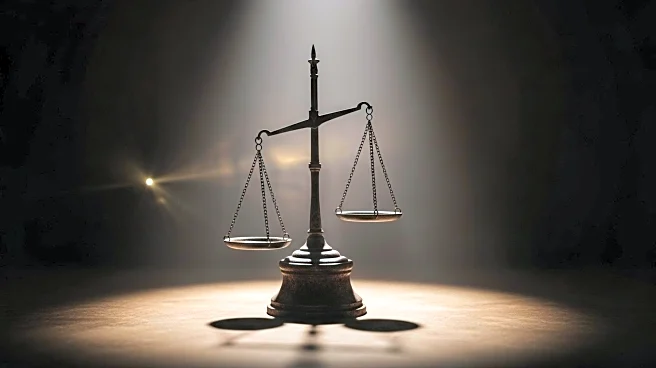What is the story about?
What's Happening?
Varro Vooglaid, a lawyer and activist, has presented a critique of the global response to the COVID-19 pandemic, highlighting how it exposed vulnerabilities in democratic systems and public trust. Vooglaid argues that emergency powers, initially intended to manage the health crisis, expanded beyond their original scope, leading to a normalization of authoritarian control. He points out that governments across Europe and beyond used these powers to suspend parliamentary debate, restrict freedoms, and impose curfews, often with minimal judicial oversight. This, according to Vooglaid, has conditioned societies to accept sweeping restrictions as standard, undermining self-governance. He also criticizes the role of propaganda in creating a manufactured consensus, where dissenting voices were marginalized, and compliance was equated with virtue.
Why It's Important?
The issues raised by Vooglaid have significant implications for democratic societies, particularly in how they balance public health and civil liberties. The expansion of emergency powers and the use of propaganda to suppress dissent could set a precedent for future crises, potentially leading to a more authoritarian governance model. This situation poses a risk to democratic institutions and individual freedoms, as citizens may become accustomed to top-down mandates. The erosion of trust in public institutions, as highlighted by Vooglaid, could also have long-term effects on public engagement and the legitimacy of democratic processes. The critique serves as a warning about the potential for crisis situations to be exploited for political control, emphasizing the need for vigilance in protecting democratic norms.
What's Next?
Vooglaid calls for societies to reclaim sovereignty and responsibility, urging individuals to resist centralized control and make informed choices. This involves recognizing the importance of safeguarding freedoms and resisting passive compliance. The broader societal response to these critiques could influence future policy decisions and the public's willingness to accept emergency measures. Political leaders, civil society groups, and citizens may need to engage in discussions about the balance between security and freedom, and how to ensure that emergency powers do not become permanent fixtures in governance.
Beyond the Headlines
The critique by Vooglaid also touches on ethical and cultural dimensions, such as the role of propaganda in shaping public perception and the ethical implications of coercive health mandates. The alignment between government, pharmaceutical companies, and global institutions raises questions about the influence of corporate interests on public policy. Additionally, the erosion of trust in medicine and democratic institutions could lead to increased skepticism and resistance to future public health initiatives, highlighting the need for transparency and accountability in governance.















